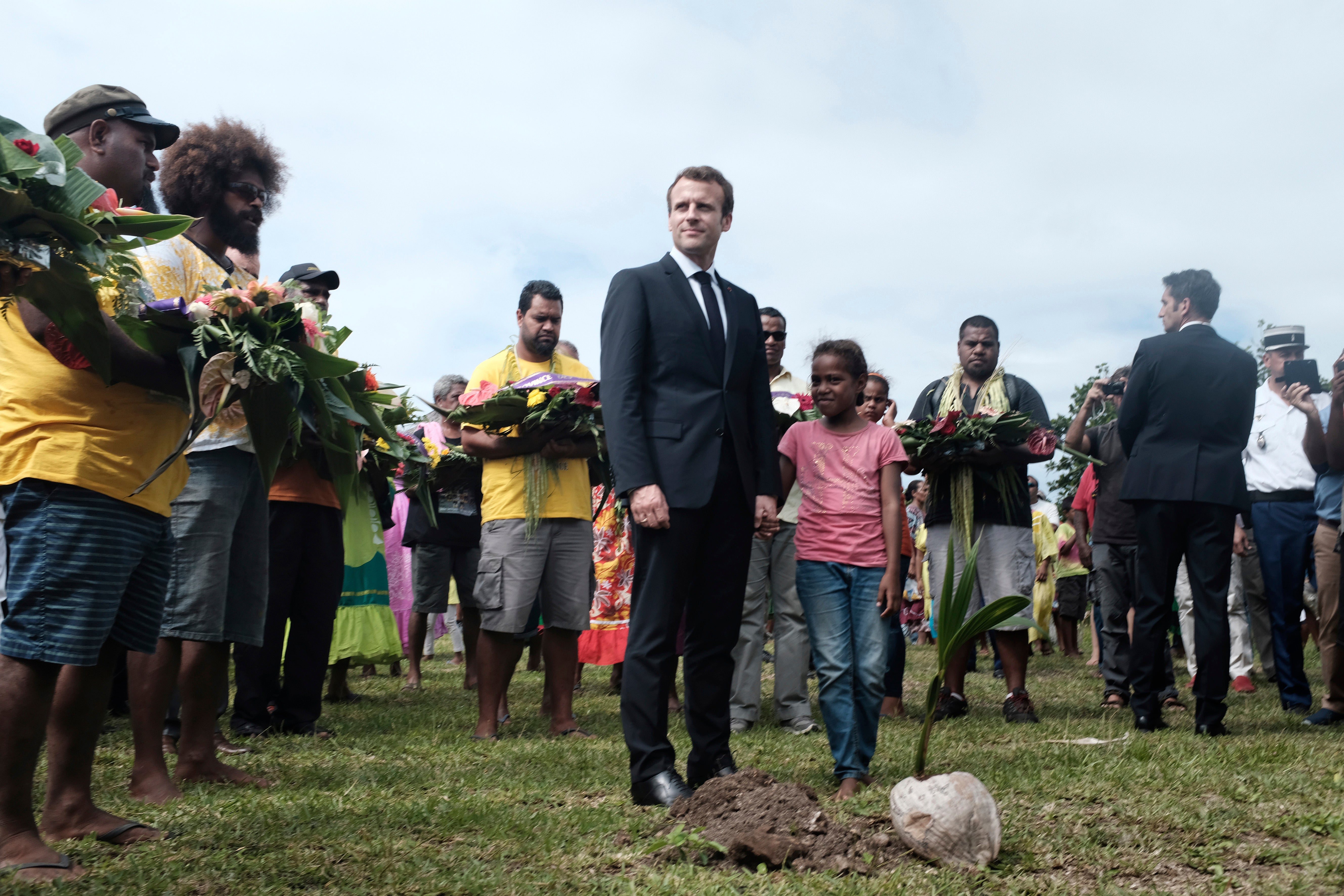Macron promotes French interests on a trip to South Pacific where US-China rivalry is intensifying
The French president is heading to the South Pacific to make France’s voice heard in a region shaping up as a prime geopolitical battleground for China and the United States

Your support helps us to tell the story
From reproductive rights to climate change to Big Tech, The Independent is on the ground when the story is developing. Whether it's investigating the financials of Elon Musk's pro-Trump PAC or producing our latest documentary, 'The A Word', which shines a light on the American women fighting for reproductive rights, we know how important it is to parse out the facts from the messaging.
At such a critical moment in US history, we need reporters on the ground. Your donation allows us to keep sending journalists to speak to both sides of the story.
The Independent is trusted by Americans across the entire political spectrum. And unlike many other quality news outlets, we choose not to lock Americans out of our reporting and analysis with paywalls. We believe quality journalism should be available to everyone, paid for by those who can afford it.
Your support makes all the difference.The French president is heading to the South Pacific to make France’s voice heard in a region shaping up as a prime geopolitical battleground for China and the U.S.
President Emmanuel Macron’s trip to Papua New Guinea, Vanuatu and New Caledonia comes as French forces take part in massive U.S.-Australian-led military exercises in the region. With French troops, citizens and resources spread across its Pacific territories, France wants to protect its own interests and project its power alongside like-minded democracies worried about China’s growing assertiveness.
Macron starts Monday in the French archipelago of New Caledonia, trying to rebuild trust after voters rejected a string of independence referendums that exposed entrenched frustrations of native Kanaks and inequalities with the mainland, and divisions over management of the region's rich nickel reserves. Negotiations are underway for a new status for the territory and its institutions.
After Vanuatu, Macron’s last and most strategically important stop is Thursday in Papua New Guinea, which has seen growing Chinese influence and signed a new security cooperation pact with the U.S. in May. The most populous Pacific Island nation is also negotiating a security treaty with Australia.
Macron's office says he plans to visit a French patrol ship in the area, and offer infrastructure projects and a partnership to save forests and mangroves while ensuring jobs in Papua New Guinea, where France’s TotalEnergies is leading a liquefied natural gas project.
Macron’s office insists the trip is not aimed at pressing an '’anti-China policy,” but at encouraging regional powers to diversify their partnerships beyond Beijing and Washington. He felt the trip was needed because of “new, more intense threats’’ to security, institutions and the environment in the region, according to an official in Macron's office who spoke on condition of anonymity because they weren't authorized to speak publicly on the matter.
Coastal erosion and other impacts of climate change top the agenda at each stop on Macron’s trip, in a region replete with islands that see periodic tsunamis and risk disappearing to rising seas, according to his advisers.
France has been an uninterrupted presence in the region since the 19th century, thanks to its colonial history and continued control over territories that are home to 1.5 million citizens and some 7,000 troops across the Indo-Pacific.